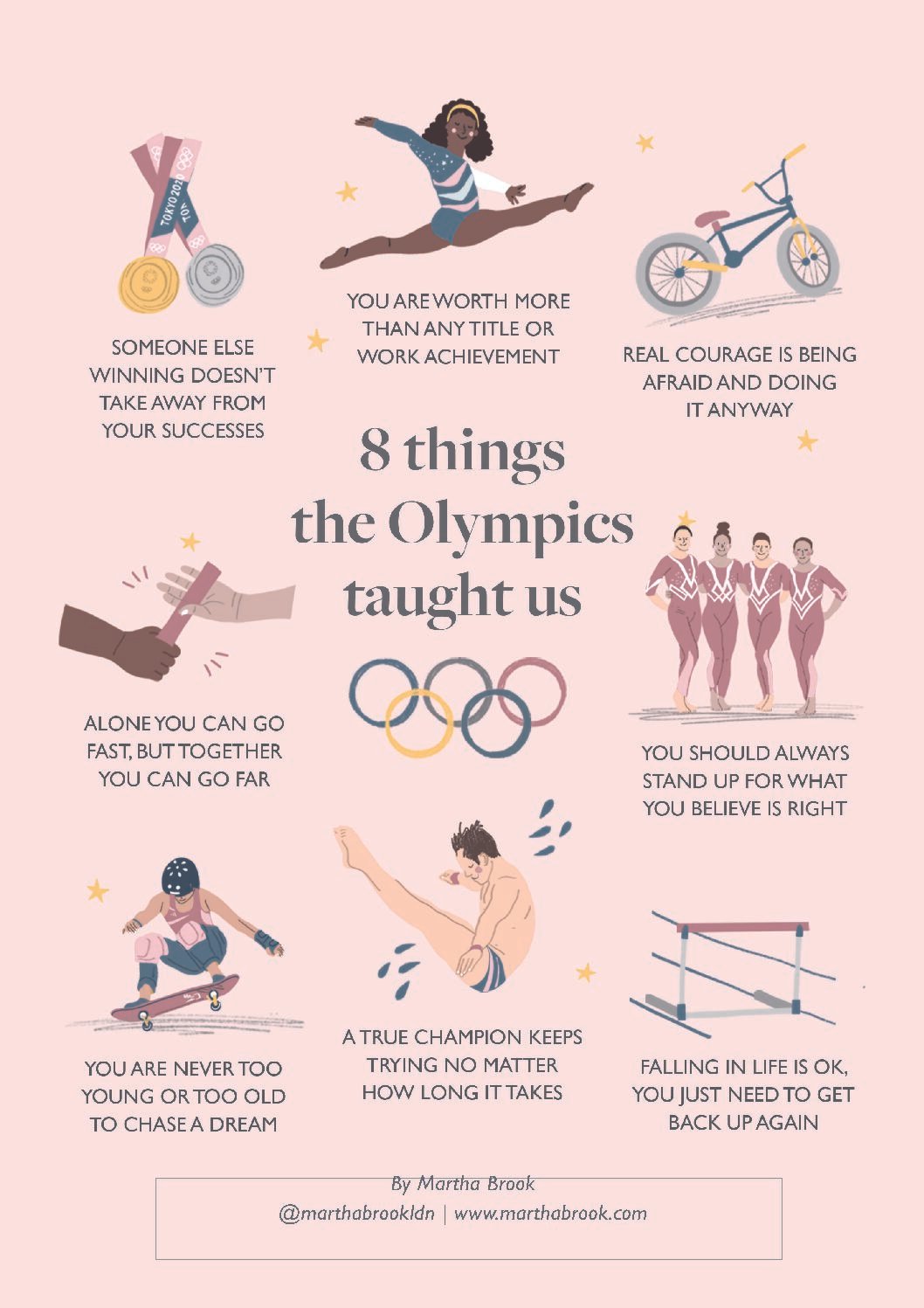What Children Can Learn from Watching the Olympics and Paralympics 2024: Life Skills Beyond the Games
The Olympics and Paralympics are much more than just sporting events—they are global celebrations of human potential, perseverance, and the pursuit of excellence. As children watch athletes from around the world compete at the highest level, they are exposed to invaluable life lessons that go far beyond the thrill of victory or the agony of defeat. The 2024 Games offer a unique opportunity for parents and educators to help children recognise these lessons and apply them to their own lives. IT is marvellous how so many around the world, become interested in sports that they would not normally follow and champions they may never have even heard of. Who would have thought by the end of the Paris Olympics that Team USA’s Ilona Maher, would become the most followed active rugby player on instagram. The Olympics and Paralympics give people a window into athletes sport and lives. It is an incredible learning opportunity to expose children to. Why? A few reasons are listed below.
The Value of Hard Work and Dedication
One of the most powerful lessons children can learn from watching the Olympics and Paralympics is the value of hard work and dedication. Every athlete competing in the Games has spent years—often decades—training, honing their skills, and overcoming countless obstacles to reach this level. This commitment to their craft teaches children the importance of perseverance and the understanding that success doesn’t come overnight.
When children see athletes giving their all, they learn that achieving their own goals, whether in academics, sports, or personal projects, requires consistent effort and a willingness to push through challenges. The discipline and dedication demonstrated by these athletes can inspire children to set goals and work diligently towards them, even when the path is difficult.
Resilience in the Face of Adversity
The Paralympics, in particular, highlight the incredible resilience of athletes who have faced significant physical challenges. These athletes show that limitations are often just obstacles to be overcome with creativity, determination, and a positive mindset. For children, watching Paralympians compete is a powerful reminder that adversity can be transformed into strength.
This lesson in resilience teaches children that setbacks and difficulties are not the end of the road. Instead, they are opportunities to learn, grow, and find new ways to succeed. By seeing how Paralympians have adapted and thrived despite their challenges, children learn that their own struggles, no matter how big or small, can be overcome with perseverance and the right mindset.
The Importance of Teamwork and Collaboration
Many events in the Olympics and Paralympics require teamwork and collaboration. Whether it’s a relay race, a team sport, or even the supportive relationships between coaches and athletes, the Games provide countless examples of how working together can lead to success.
Children can learn that teamwork is about more than just dividing tasks—it’s about trust, communication, and supporting each other towards a common goal. Watching athletes collaborate and celebrate each other’s successes teaches children the importance of being a good teammate and the value of collective effort.
Embracing Diversity and Inclusion
The Olympics and Paralympics bring together athletes from every corner of the globe, representing a wide array of cultures, backgrounds, and abilities. This diversity is a powerful reminder of the beauty of inclusion and the strength that comes from different perspectives and experiences.
For children, watching these international events is an opportunity to learn about different cultures and to appreciate the common humanity that unites us all. The Paralympics, in particular, challenge stereotypes about disability and show that excellence comes in many forms. These lessons in diversity and inclusion are essential for fostering empathy, respect, and a global mindset in young people.
Setting and Achieving Goals
Olympic and Paralympic athletes set ambitious goals for themselves, often pushing the boundaries of what is considered possible. Their journeys teach children the importance of goal-setting, the value of having a clear vision, and the determination required to achieve those goals.
Children learn that setting goals is the first step towards achieving something great, but it is the continuous effort, the willingness to learn from failure, and the ability to adapt to changing circumstances that ultimately lead to success. This understanding can help children in their own goal-setting, whether in school, sports, or personal development.
The Spirit of Fair Play and Sportsmanship
The Olympic and Paralympic Games are steeped in the tradition of fair play and sportsmanship. Athletes are expected to compete with integrity, respect their opponents, and honour the rules of their sport. These values are central to the Olympic spirit and are equally important in everyday life.
Children watching the Games can learn that winning isn’t everything—how you play the game matters just as much. Sportsmanship teaches them to handle both victory and defeat with grace, to respect others, and to value honesty and fairness in all their interactions.
Conclusion
The Olympics and Paralympics 2024 offer a treasure trove of life lessons for children. By observing the dedication, resilience, teamwork, diversity, goal-setting, and sportsmanship displayed by athletes, children can learn valuable skills that will serve them well throughout their lives. Parents and educators can use these moments to start conversations about these important values, helping children to see the connection between what they watch on the screen and the skills they can apply in their own lives. The Olympics may be over for another four years but the Paralympics start on Wednesday 28th August.
These lessons go beyond the world of sports—they are lessons in how to be a good human being, how to face life’s challenges with courage, and how to pursue excellence in whatever path they choose.
Credit for featured image : @marthabrookldn







